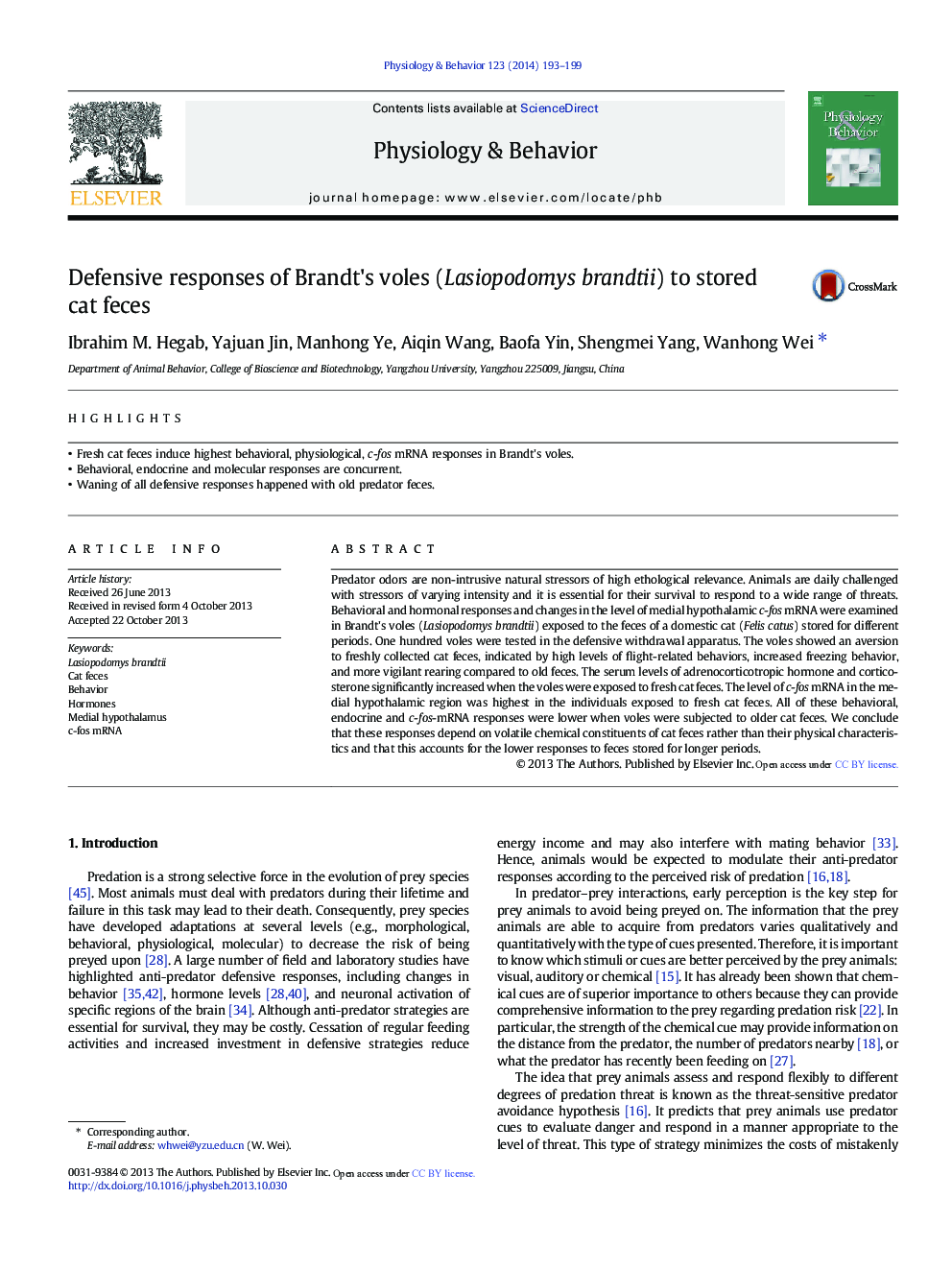| Article ID | Journal | Published Year | Pages | File Type |
|---|---|---|---|---|
| 5924588 | Physiology & Behavior | 2014 | 7 Pages |
â¢Fresh cat feces induce highest behavioral, physiological, c-fos mRNA responses in Brandt's voles.â¢Behavioral, endocrine and molecular responses are concurrent.â¢Waning of all defensive responses happened with old predator feces.
Predator odors are non-intrusive natural stressors of high ethological relevance. Animals are daily challenged with stressors of varying intensity and it is essential for their survival to respond to a wide range of threats. Behavioral and hormonal responses and changes in the level of medial hypothalamic c-fos mRNA were examined in Brandt's voles (Lasiopodomys brandtii) exposed to the feces of a domestic cat (Felis catus) stored for different periods. One hundred voles were tested in the defensive withdrawal apparatus. The voles showed an aversion to freshly collected cat feces, indicated by high levels of flight-related behaviors, increased freezing behavior, and more vigilant rearing compared to old feces. The serum levels of adrenocorticotropic hormone and corticosterone significantly increased when the voles were exposed to fresh cat feces. The level of c-fos mRNA in the medial hypothalamic region was highest in the individuals exposed to fresh cat feces. All of these behavioral, endocrine and c-fos-mRNA responses were lower when voles were subjected to older cat feces. We conclude that these responses depend on volatile chemical constituents of cat feces rather than their physical characteristics and that this accounts for the lower responses to feces stored for longer periods.
